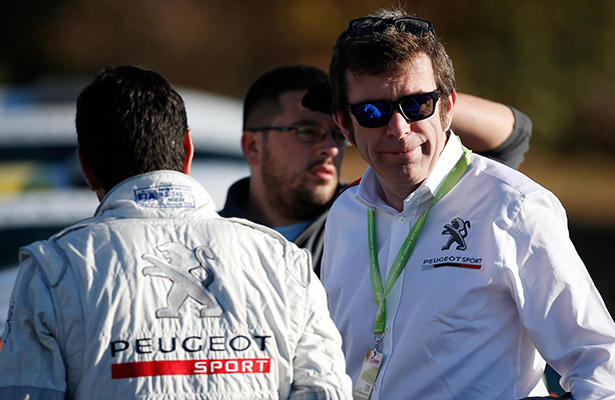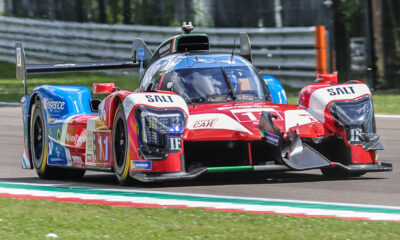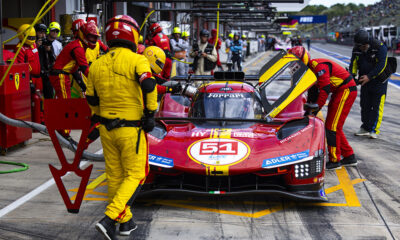
Photo: DPPI/Peugeot
Peugeot Sport Director Bruno Famin has revealed they are pushing for a reduction of hybrid power in LMP1 on the grounds of costs, in order to commit to a return to top-level prototype racing. (En Français)
The French manufacturer is understood to be closing in on a decision for a factory LMP1 program, potentially around the FIA and ACO’s planned new set of regulations for 2020, although Famin said they would have to do it “without spending a fortune.”
“Discussions are ongoing with the ACO and the FIA technical department of the commission but also with the Endurance [Commission],” Famin told Endurance-Info.
“I think a real decision requires the awareness of reducing costs. And what’s nice is that the manufacturers already present also agree with our arguments.
“We need to fight for victory without having to spend a fortune but with a reasonable level of hybridization.”
Famin stressed the importance of hybrid technology but admitted the ACO’s rumored reduction to a single energy recovery system for 2020 would help put costs in order.
However, the concept, which could cut current hybrid power levels in half, would potentially see Toyota withdraw, according to a recent comments made by technical director Pascal Vasselon.
“We say it’s unnecessary to recover 10MJ [per lap of Le Mans],” Peugeot’s Famin said. “If one has 3 or 4MJ, there is a hybrid car with technology that has a true sense of what can be transitioned to [production] cars.
“We believe that the first order of today, in terms of cost, is the [weight] the hybrid systems add to cars. The costs are prohibitive since multiple hybrid systems become extremely complex.
“We wish to retain the technological aspect of the championship because that’s what made its success today and [we don’t want to jeopardize] that.
“It’s essential we can communicate [about] hybrid [technology], otherwise it’s meaningless.
“However, the viability of the championship is directly linked to the economic profitability that can attract these manufacturers, so we must pay close attention to the costs and benefits.”
Famin admitted he’s not personally against the number of energy retrieval units allowed, as long as manufacturers employing a less powerful system would be given an equal chance.
“If a manufacturer wishes to put two or three [ERS] on board and run with 10 or 12MJ, [that’s] free to them, provided that those who do not go that far can remain competitive,” he said.
“We simply want the regulations to open up the game.”
While PSA Chairman Carlos Tavares has previously admitted that two of three conditions have been met for Peugeot’s return to LMP1, Famin is still non-committal to specifics of its potential program, should it get the green light.
“Clearly, Carlos Tavares said this is a program that interests us, which would correspond well with the brand,” Famin said.
“This is primarily a constructors World Championship where you can show off technology to manufacturers in a very good level. This is clearly rewarding and we’re interested.
“But as in any program we do, it must offer a competitive return on investment since we are there primarily to communicate.”

























